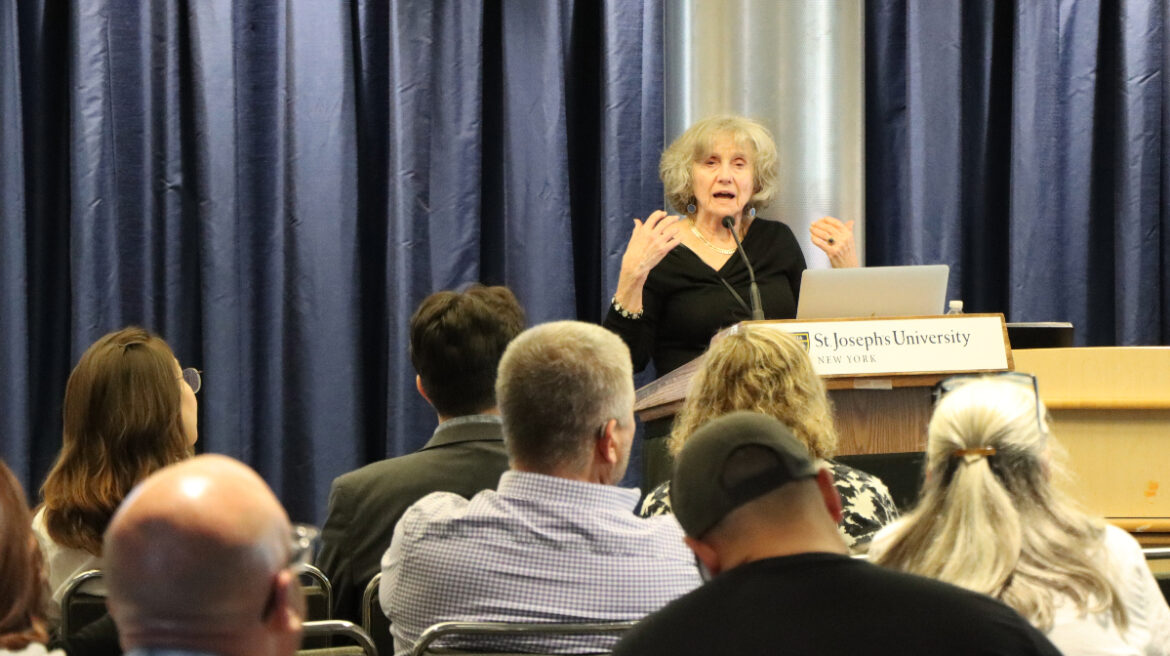Dr. Eva Feder Kittay, a distinguished professor of philosophy (emerita) from Stony Brook University, visited the Long Island Campus last month to discuss disability and feminist care ethics in the post-pandemic world.
Her Oct. 26 presentation, titled “Care as Infrastructure,” took place in the McGann Conference Center and on Zoom, and was sponsored by St. Joseph’s philosophy department, as well as the Institute for Ethics and Social Justice.
“The occlusion of care work, its hidden nature, is due to the failure of our social, economic and political thought and policies to take seriously the fact of inevitable human dependency of infants, the ill and disabled, the frail elderly,” Dr. Kittay said.
She shared that, in the United States, women account for most caregivers — and most are unpaid. As a result, women do not get to share in the world of equality. That is, of course, unless the current care infrastructure changes.
“Many direct-care workers employed by individuals and third parties have been excluded from the minimum wage and overtime protections of the Fair Labor Standards Act under the current companionship services exemption,” Dr. Kittay said. “That is, caregivers are viewed as ‘companions’ rather than as workers on par with other workers.”
While infrastructure can help in physically connecting people, there are plenty of limitations set in place by the roadways and buildings on Long Island that restrict people with disabilities, as well as people of lower socioeconomic status.
The same can be said of the infrastructure surrounding the employment of caregivers.
“We can help support care workers by de-gendering care to spread responsibilities across the entire society, and by protecting them whoever they are — citizens and migrants alike,” Dr. Kittay said. “You can’t build bridges and you can’t support care without people who are well-paid and trained.”

